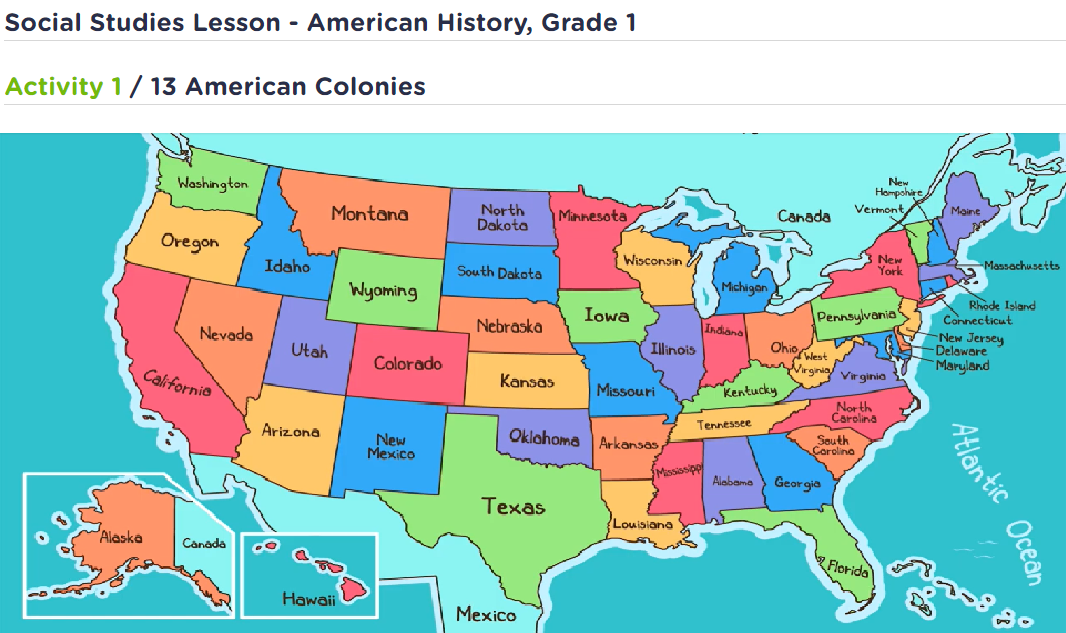Problem-Solving Skills Life Science Worksheets for Ages 7-8
4 filtered results
-
From - To
Unlock your child's potential with our "Problem-Solving Skills Life Science Worksheets for Ages 7-8." These engaging, printable worksheets are designed to enhance critical thinking and foster a love for life science in young learners. From understanding food chains to exploring ecosystems, each activity challenges children to apply problem-solving techniques in real-world scenarios. Perfect for both classroom and home learning, our worksheets align with educational standards and encourage hands-on, interactive fun. Empower your child with the skills they need to thrive academically and beyond. Explore our collection today and embark on a journey of discovery and growth!
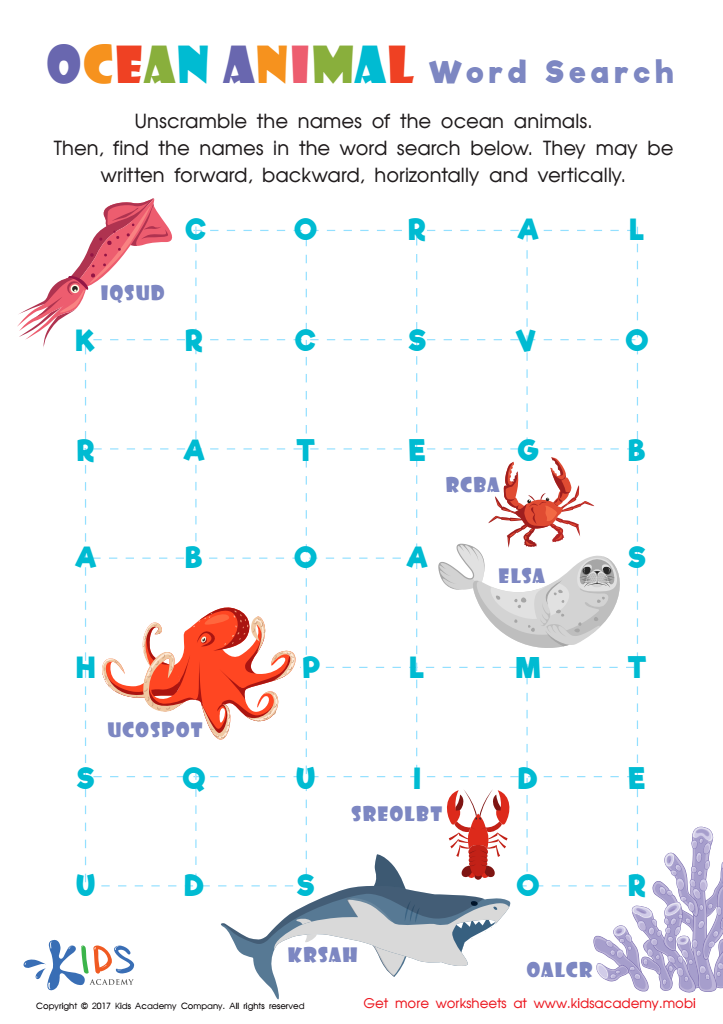

Ocean Animals Word Search Printable
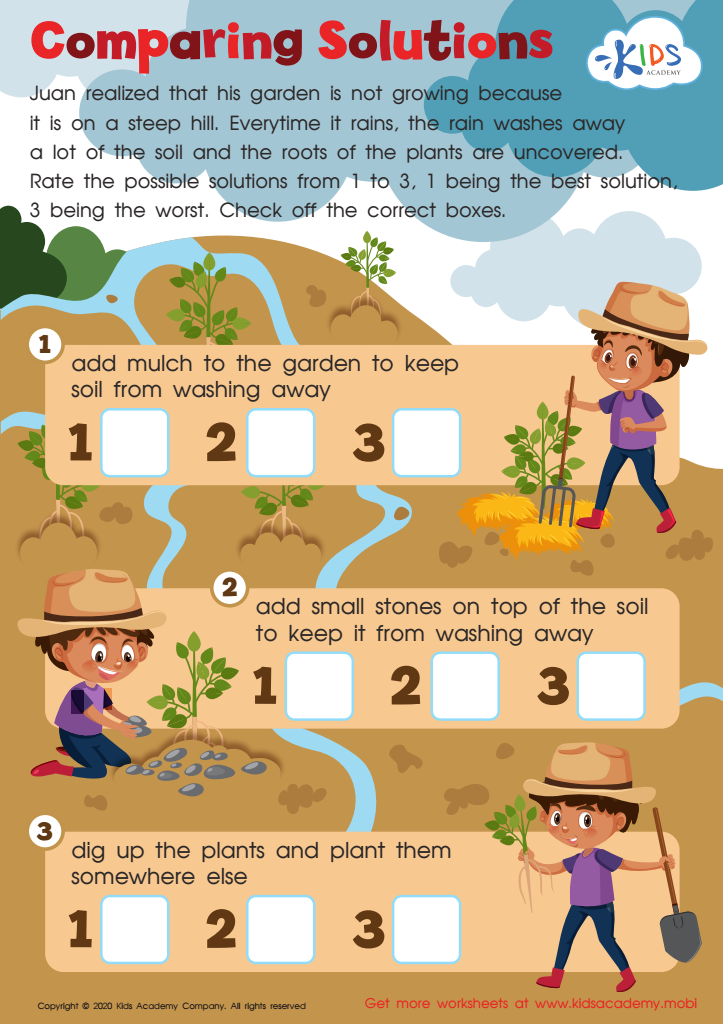

Comparing Solutions Worksheet
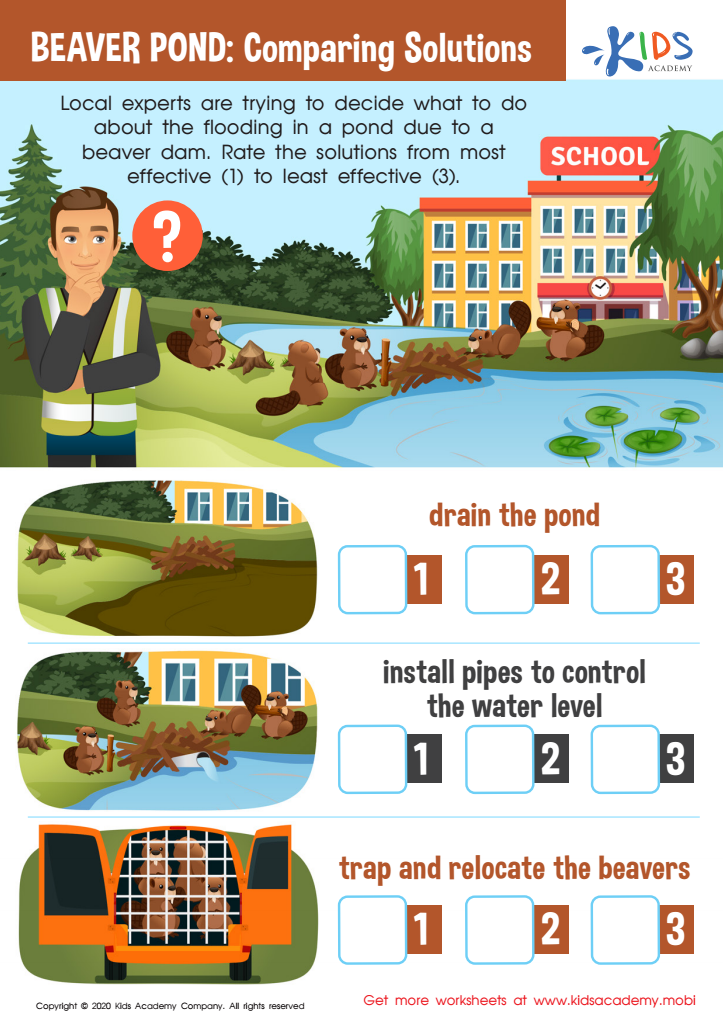

Beaver Pond: Comparing Solutions Worksheet
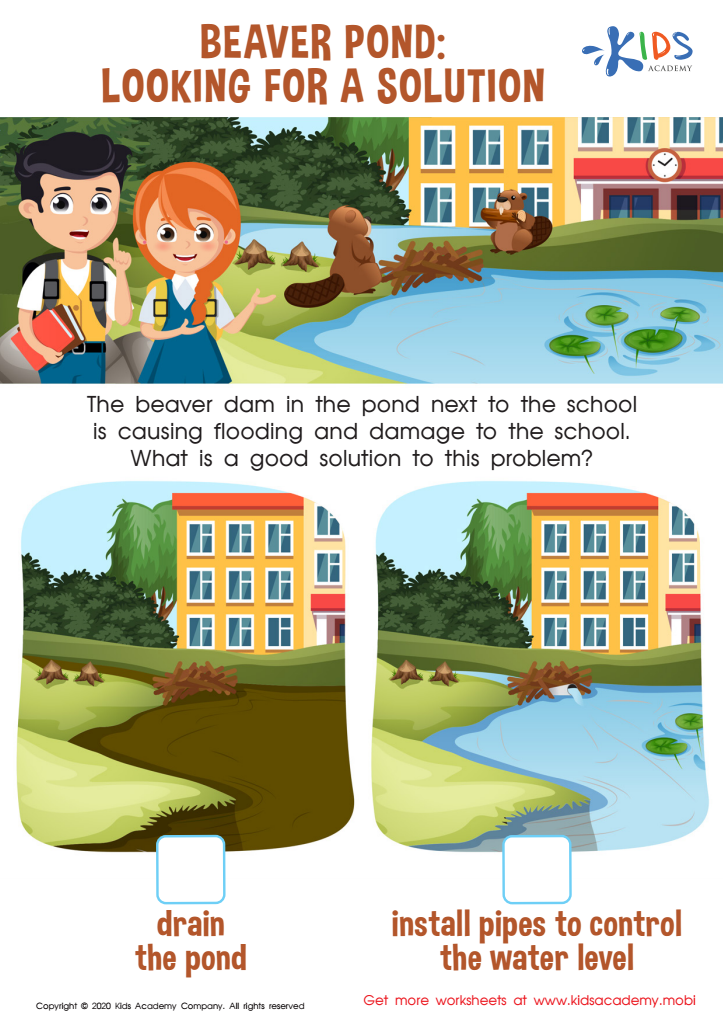

Beaver Pond: Looking for a Solution Worksheet
Problem-solving skills in life science for children ages 7-8 are incredibly important because they lay a foundational understanding of the natural world and foster critical thinking abilities. At this formative stage, young learners are naturally curious, and life science taps into that curiosity by encouraging exploration and inquiry about living things and their environments. Engaging in problem-solving activities within this context helps children develop analytical skills, which are essential for understanding complex systems and relationships in nature.
When children face scientific questions or challenges, they learn to hypothesize, test their ideas, observe outcomes, and draw conclusions. This process not only aligns with the scientific method but also with everyday problem-solving techniques, making it a valuable lifelong skill. Moreover, by working collaboratively on life science projects, children enhance social skills such as communication, cooperation, and teamwork.
For parents and teachers, nurturing these skills supports academic growth across subjects, promoting a love for learning and an appreciation for science. It cultivates resilience as kids learn to view challenges as opportunities for growth rather than obstacles. In a world where scientific literacy is increasingly critical, nurturing problem-solving skills in life science during early education sets a strong precedent for future success in and out of the classroom.
 Assign to My Students
Assign to My Students





%20(1).jpg)
